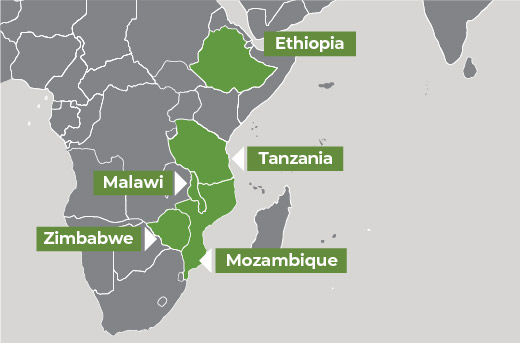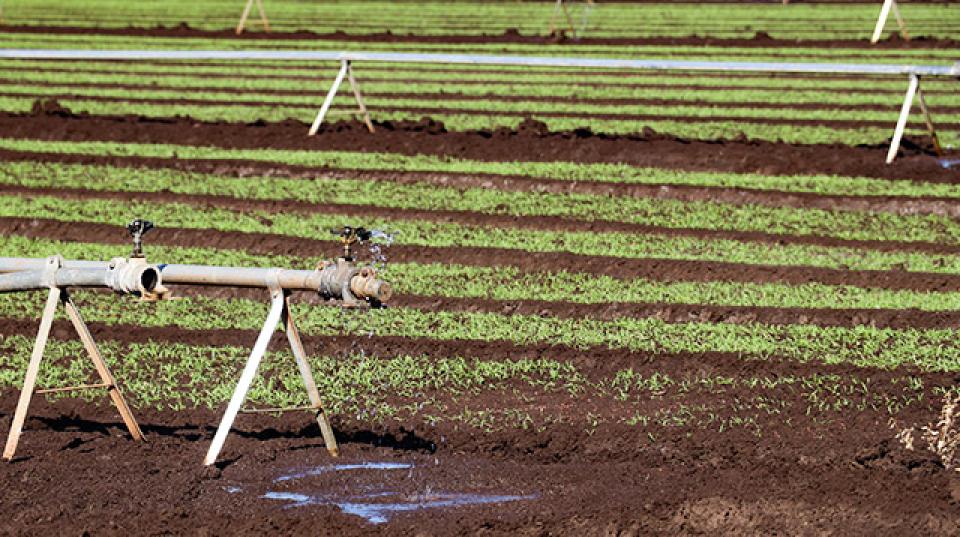Overview
This project aims to demonstrate that circular food systems can decouple growth in social and economic benefits from the consumption of natural resources (particularly water and land) and production of greenhouse gas emissions in agriculture, reducing urbanisation by creating local employment opportunities.
The research team will test how smallholder irrigation schemes might become the engine of local resilience and economic development by being integrated with livestock, and dryland agricultural production to support the strategic and inclusive development of small, value-adding businesses to form climate-smart circular food systems in East and Southern Africa.
Working in at least 5 localities in Mozambique, Tanzania and Zimbabwe, the project aims to use agricultural innovation platforms to build a mutual understanding of the basics of circularity (including creating local jobs for women and other underserved groups in value-adding locally) and facilitate the integration and inclusive co-design of local small, medium, and micro enterprises (SMMEs) and associated value chains.




